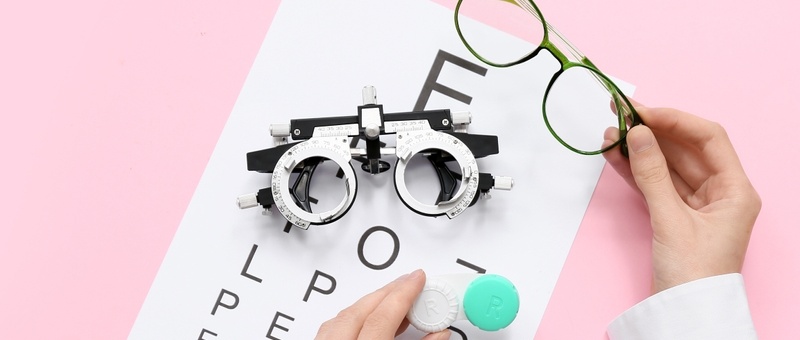
Is your office hurting your eyes?
Peer reviewed by Dr Sarah Jarvis MBE, FRCGPLast updated by Julian TurnerLast updated 22 Aug 2019
Meets Patient’s editorial guidelines
- DownloadDownload
- Share
- Language
- Discussion
Many of us spend a disproportionate amount of our time in the office, and this can have a detrimental impact on the health of our eyes. We ask an optometrist for advice on how best to protect our vision in the work environment.
In this article:
Video picks
Long periods spent in front of a computer, exposure to glare from overhead lighting, desk lamps and uncovered windows, air conditioning units that extract moisture from the air. The modern, deadline-driven office environment - both in situ, and increasingly at home - can be tough on our eyes.
A review of the latest research into digital eye strain (DES) - otherwise known as computer vision syndrome - published in the British Medical Journal in 2018, suggests that the prevalence of DES may be 50% or more among computer users.
However, despite the best intentions of employers and office workers, taking a 5- to 10-minute screen break every hour (as recommended by the UK Health and Safety Executive) is often neither desirable nor practical.
What is eye strain?
Thankfully, computer use hasn't been shown to cause any permanent damage to our eyes. However, it can be strenuous to those using a VDU (video display unit) regularly, resulting in blurred vision, difficulty focusing, discomfort such as dryness, itchiness or twitching, eye fatigue, and, in some cases, headaches.
This is because looking at a screen all day requires effort from your overworked eye muscles, and, like all muscles in the body, they can become tired after prolonged periods of use, resulting in DES.
While these symptoms may be common after long periods of screen time, the UK Association of Optometrists (AOP) recommends that you visit an optometrist if you experience any of them.
Focus on existing eye problems
Back to contentsIn addition, excessive screen time may indirectly highlight a vision problem unknown to the patient.
"Working on a VDU screen all day is demanding on your eyes, and this will often make you notice an existing eye condition that you were otherwise unaware of, such as uncorrected myopia, commonly known as short-sightedness," confirms Aishah Fazlanie, optometrist and clinical and regulatory advisor at AOP.
"As a result, patients will often present with symptoms such as blurred vision or headaches and in most cases this can be treated with prescription glasses or contact lenses."
In medical terms, eye strain from computer use is a relatively recent phenomenon, and over the past three decades UK legislation has sought to protect workers using DSE.
In addition to offering training and information, employers must complete a DSE workstation assessment and reduce risks - including making sure workers take breaks from DSE work, or do something different - as well as provide an eye test if an employee asks for one.
"Employees who regularly use a VDU screen at work are entitled to a sight test and regular workstation assessment, which is funded by their employers," confirms Fazlanie.
"If glasses are required for VDU use following this examination, the employer may also be able to help towards the cost of this."
Continue reading below
How to avoid eye strain at work
Back to contentsThere is also a range of useful self-help tips that office workers can employ to protect their eyes from excessive screen use, chief among them taking regular breaks from their computer.
"A good rule of thumb is to look away from your screen every 20 minutes at something at least 20 ft away for 20 seconds," says Fazlanie.
"However, the length of time spent at your VDU screen is not the only thing that can leave your eyes feeling strained, dry or irritated. Air conditioning and glare from uncovered windows, lamps and overhead light fixtures can all have an impact on your eyes.
"It is therefore important to try to position computers so that the light isn't shining directly on to your screen, and decrease the brightness of the screen to a more comfortable viewing level."
Even something as prosaic as remembering to blink can have tangible benefits.
"We generally tend to blink a lot less whilst concentrating, which can lead to the natural coating of the tears over your eyes, to start to evaporate," explains Fazlanie. "Try to remember that blinking often will help to avoid your eyes feeling dry and uncomfortable.
"It is also important to have regular sight tests to ensure that you are wearing the optimum prescription and maintain good ocular health."
What should I do if I'm worried?
Back to contentsAnother review of research into the management of DES, again from 2018, suggests that as many as 90% of digital device users experience symptoms of the condition. If you are worried about your vision for any reason, the message is simple: visit your optometrist.
"As well as an eye health check, a sight test might help detect signs of underlying general health conditions such as diabetes, high cholesterol and high blood pressure," adds Fazlanie. "Everyone should have a sight test every two years, or more often if your optometrist recommends it."
Patient picks

Eye health
Top 10 tips for dry eye relief
Dry eyes happen for various reasons. While not usually serious, they can be uncomfortable. Fortunately, there are several things you can do to treat dry eyes and find relief from symptoms.
by Victoria Raw

Eye health
What is AMD and why should you pay attention?
One of Britain’s most beloved actors has spoken candidly about living with a condition that has affected her ability to go outdoors alone. Dame Judi Dench was diagnosed with age-related macular degeneration (AMD) 14 years ago, at the age of 76. AMD is a common eye condition that affects your central vision and gradually reduces your ability to see clearly straight ahead. We asked an expert what AMD does to your eyes, the key symptoms to watch for, and steps you can take to help protect your sight.
by Victoria Raw
Continue reading below
Article history
The information on this page is peer reviewed by qualified clinicians.
22 Aug 2019 | Latest version

Ask, share, connect.
Browse discussions, ask questions, and share experiences across hundreds of health topics.

Feeling unwell?
Assess your symptoms online for free
Sign up to the Patient newsletter
Your weekly dose of clear, trustworthy health advice - written to help you feel informed, confident and in control.
By subscribing you accept our Privacy Policy. You can unsubscribe at any time. We never sell your data.